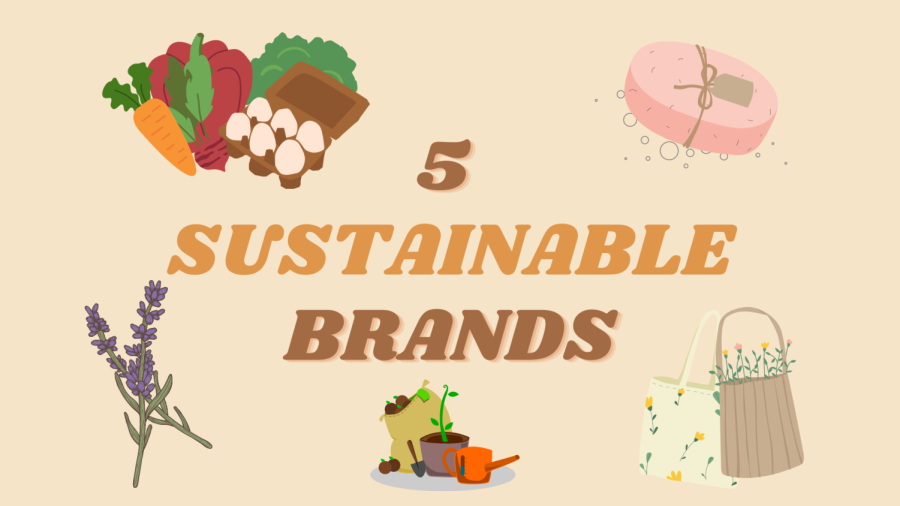5 Sustainable Brands/Stores
June 2, 2023
It’s hard to lead a completely sustainable lifestyle as the companies that surround us are known for being major sources behind carbon emissions and other sorts of environmentally harmful issues. Such brands are put at the tops of lists and trends, causing the many eco-friendly ones to be at the bottom with their small presence. These brands are difficult to find, so I’ve created a short list of brands owned by people who keep the earth in mind as they work and create to give you a head start on your sustainable lifestyle.
1. Aspen Essence
In modern times, soap is usually created with chemicals that can actually harm you. This brand uses all-natural ingredients to lower that risk of harm and as a bonus: helps the environment. As an environmental enthusiast, the owner of this brand looks for ways to reduce their waste. For example, they realized that the cardboard they get from buying packaging products can be shredded and reused as filler cardboard. With mostly 5 star product reviews, it’s no doubt their customers enjoy their vegan and environmentally friendly items.
2. Canned Goods Clothing
Could you imagine opening a cool-looking can, hoping for some tomatoes and instead finding a cool-looking shirt? Well 19-year-old Easton Dana could. After learning about just how much plastic harms the environment, Dana wanted to show how people can implement more eco-friendly practices in their life. By canning his shirts, it is more likely a customer will recycle the packaging, promoting sustainability and lowering plastic waste. Not only will customers be getting a shirt, but each can comes with a seed that can be planted in the can itself. The people behind Canned Goods Clothing prove that with a little bit of creativity, anything can be reused, reduced, or recycled.
3. Goldilocks Goods
Everything this company has done has been planned out–from their name all the way down to the statistics. Their workers have thought of all the ways in which they can do better for the environment and for their customers. Growing their social media presence due to their popular beeswax wraps, it’s no surprise that their bestsellers have many five star reviews. Beeswax wraps, which are cotton fabrics covered in melted beeswax, are an eco-friendly alternative to plastic wraps and have many purposes including food storage and simple fidgeting. Their website and their social media are extremely helpful as their managers are ready and eager to answer any questions from their customers and audience. Not only does Goldilocks Goods sell beeswax wraps, but they also sell products for your kitchen and for your hair. This company shows that they know the purposes behind the ingredients of products and won’t hesitate to inform their customers about the consequences either.
4. Mindful Merchant (Cary, NC)
If you’re looking for a refill store, Mindful Merchant is a local choice. Refill stores are where customers can bring in their reusable containers and stock up on bath, kitchen, and cleaning supplies such as lotion, dish soap, and dryer balls. Some refill stores also have a catalog of sustainable items to buy such as beeswax crayons and notebooks. But the cool thing about Mindful Merchant is that they also sell items sustainably made by local artists and small business owners such as handmade bowls & mugs and scrap metal sculptures. Mindful Merchant puts together creativity and sustainability to help move towards zero waste.
5. Farmers Markets (Raleigh, NC)
An outdoor store full of stalls with produce & plants, arts & crafts, and much more–all locally made and grown–just has sustainability written all over it. When you shop for locally sourced items, carbon emissions are significantly reduced compared to shopping from a grocery store. This is due to the large amount of carbon emitted to transport items from a place across the country to your local grocery store which is immensely greater than the amount of carbon emitted to transport items locally made to local markets. Some areas with farmers markets even have restaurants that get their produce from those local farms. This movement of using locally grown produce in restaurants is called farm-to-table, and is not only used in restaurants but in some school cafeterias as well. Farmers Markets just make it easier for consumers to buy locally, and also creates an environment allowing people to socialize.








